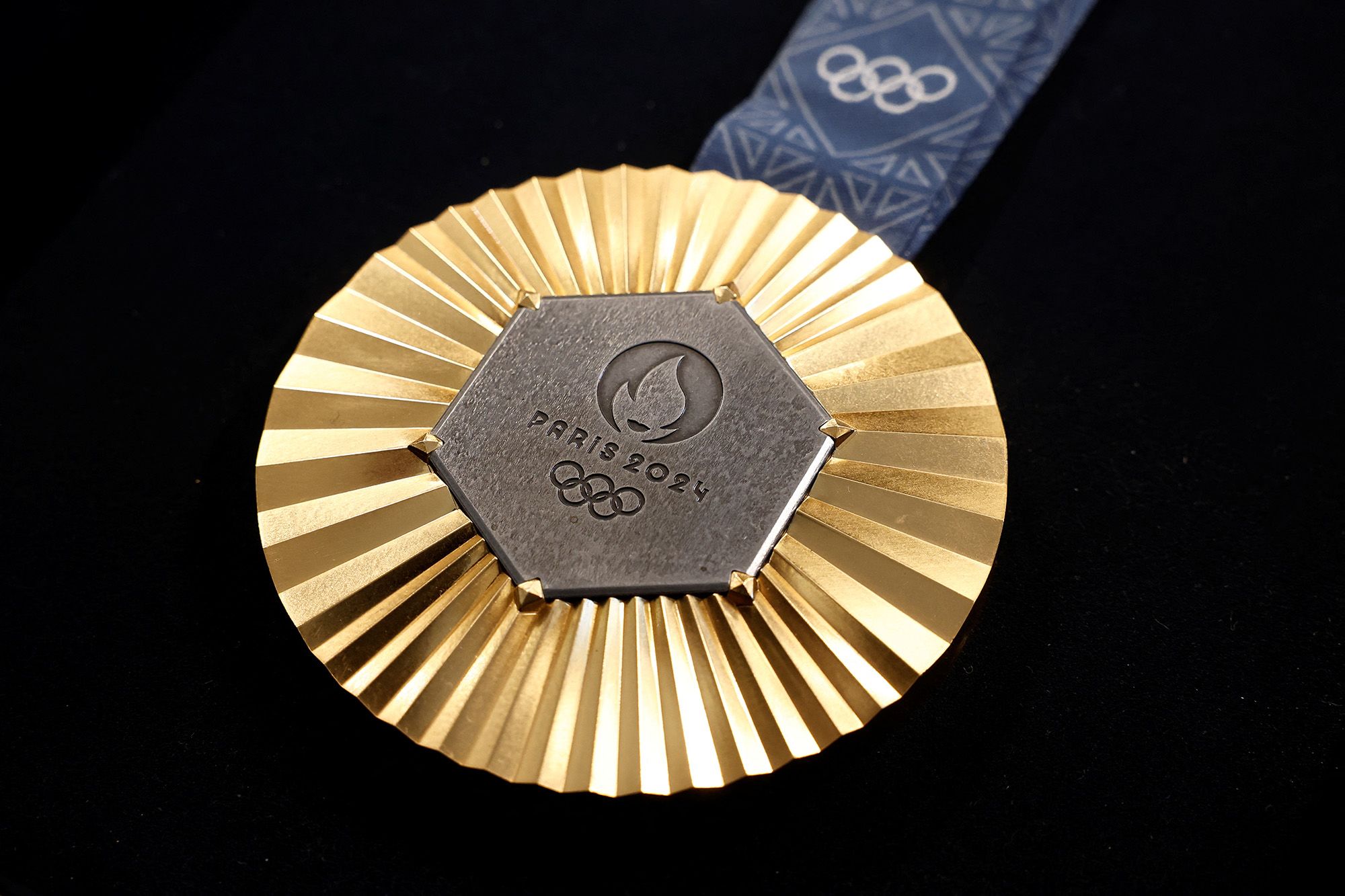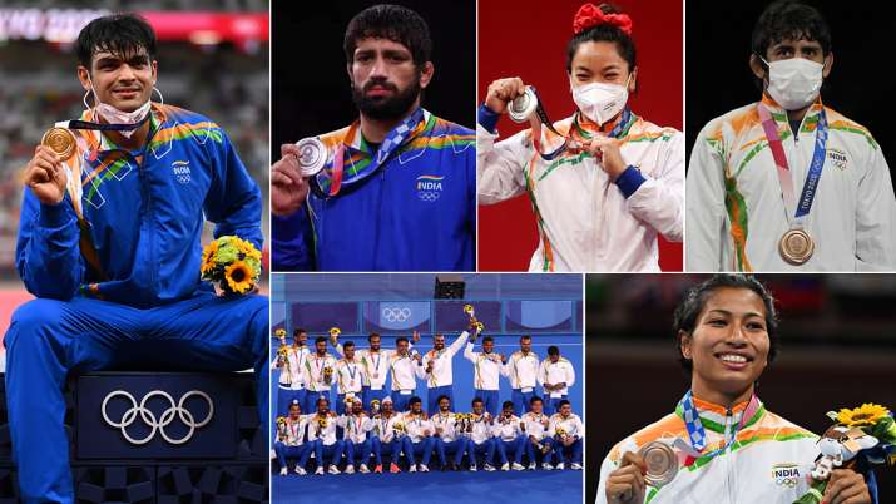Historical Overview of India at the Olympics

India’s journey at the Olympic Games is a testament to the country’s sporting prowess and its evolution over the years. From its initial participation to its current standing, India’s Olympic history is marked by moments of triumph, resilience, and a relentless pursuit of excellence.
Timeline of India’s Olympic Participation
India’s Olympic journey began in 1900 with the participation of Norman Pritchard, a British-born athlete who competed in the Summer Olympics in Paris. However, India’s official participation as an independent nation started in 1920 at the Antwerp Games. The following timeline highlights key milestones and achievements in India’s Olympic history:
- 1900: Norman Pritchard, a British-born athlete representing India, wins two silver medals in athletics at the Paris Olympics, marking the beginning of India’s Olympic journey.
- 1920: India participates in the Antwerp Olympics as an independent nation for the first time.
- 1928: Dhyan Chand, a legendary field hockey player, leads India to its first Olympic gold medal in Amsterdam.
- 1932: India wins its second Olympic gold medal in field hockey at the Los Angeles Olympics.
- 1936: India wins its third consecutive Olympic gold medal in field hockey at the Berlin Olympics.
- 1948: India wins its fourth Olympic gold medal in field hockey at the London Olympics, following the country’s independence.
- 1952: India wins its fifth Olympic gold medal in field hockey at the Helsinki Olympics.
- 1956: India wins its sixth Olympic gold medal in field hockey at the Melbourne Olympics.
- 1960: India wins its seventh Olympic gold medal in field hockey at the Rome Olympics.
- 1964: India wins its eighth Olympic gold medal in field hockey at the Tokyo Olympics.
- 1980: India wins its first Olympic gold medal in a sport other than field hockey, with a victory in the men’s hockey tournament at the Moscow Olympics.
- 2008: Abhinav Bindra becomes the first Indian to win an individual Olympic gold medal, in the men’s 10-meter air rifle event at the Beijing Olympics.
- 2012: India wins its first Olympic medal in wrestling, with a bronze medal by Yogeshwar Dutt in the men’s 60 kg freestyle event at the London Olympics.
- 2016: India wins two Olympic medals, a silver medal in badminton by P. V. Sindhu and a bronze medal in wrestling by Sakshi Malik at the Rio Olympics.
- 2020: India wins its best-ever performance at the Tokyo Olympics, with a total of seven medals, including a gold medal in javelin throw by Neeraj Chopra.
Evolution of India’s Olympic Performance
India’s Olympic performance has evolved significantly over the years, with notable changes in medal count, sports participation, and overall impact.
- Medal Count: India’s medal count has gradually increased over the years, with a significant jump in recent years. The country’s performance at the Tokyo Olympics in 2020, where India won seven medals, reflects the growing strength and potential of Indian athletes across various disciplines.
- Sports Participation: India’s participation in the Olympics has expanded beyond traditional sports like field hockey. Athletes from various disciplines, including badminton, wrestling, shooting, boxing, and weightlifting, have emerged as medal contenders, showcasing the diversity of Indian sporting talent.
- Overall Impact: India’s Olympic journey has had a profound impact on the country’s sporting landscape. The achievements of Indian athletes have inspired a new generation of aspiring sportspersons and fostered a growing interest in sports among the youth. The country’s Olympic performances have also contributed to a sense of national pride and unity.
Historical Context of Indian Sports, India at the olympics medals
The historical context of Indian sports plays a significant role in shaping the country’s Olympic journey.
- Ancient Traditions: India has a rich tradition of sports and physical activities, dating back to ancient times. The ancient texts, such as the Mahabharata and the Ramayana, mention various forms of wrestling, archery, and chariot racing, reflecting the importance of physical prowess in Indian society.
- British Influence: During the British colonial era, sports like cricket, hockey, and football were introduced to India. These sports gained popularity and became integral to the Indian sporting landscape. The British influence also contributed to the development of organized sports and the establishment of sporting institutions in India.
- Post-Independence Era: After India’s independence, there was a renewed focus on promoting sports and developing athletes. The government established various sports academies and institutions, providing training and infrastructure for aspiring sportspersons. The government also invested in sports development programs, aiming to improve India’s performance at international sporting events, including the Olympics.
Analyzing India’s Medal Performance: India At The Olympics Medals

India’s journey at the Olympics has been marked by both triumphs and challenges. While the nation has witnessed remarkable achievements in certain sports, its overall medal tally remains modest compared to other sporting giants. Analyzing India’s performance requires considering various factors, including historical context, resource allocation, and the evolution of sporting infrastructure.
India’s Medal Tally Across Olympic Games
India’s medal performance at the Olympics has been characterized by a steady increase in medal count, although the number remains relatively low compared to many other nations. This section provides a detailed breakdown of India’s medal tally across different Olympic Games, including the distribution by sport and gender.
- India’s first Olympic medal was a gold in hockey at the 1928 Amsterdam Games. This marked the beginning of a golden era for Indian hockey, which went on to dominate the sport for decades.
- India’s medal tally has steadily increased over the years, with significant contributions from various sports, including hockey, wrestling, boxing, badminton, and shooting.
- India’s performance in the 2020 Tokyo Olympics was a landmark achievement, with the country securing a total of 7 medals, including one gold, two silver, and four bronze. This marked the highest number of medals won by India in a single Olympic Games.
- While India’s medal performance has been dominated by men, women athletes have made significant strides in recent years. In the 2020 Tokyo Olympics, women athletes won a record number of medals for India, including the first-ever gold medal by a female Indian athlete in athletics.
Comparing India’s Performance with Other Nations
To understand India’s performance in the context of the global sporting landscape, it is essential to compare its medal tally with other nations. This section analyzes India’s performance against other countries, considering factors such as population, economic development, and sporting infrastructure.
- Despite its vast population, India’s medal tally remains modest compared to countries like the United States, China, and Great Britain. These nations have consistently dominated the Olympics, fueled by significant investments in sports development and infrastructure.
- India’s economic development has played a crucial role in its sporting performance. The country has witnessed rapid economic growth in recent years, leading to increased investments in sports. However, the allocation of resources for sports development remains relatively low compared to other nations.
- India’s sporting infrastructure is another key factor that influences its performance. While significant strides have been made in recent years, the country still lags behind in terms of world-class training facilities, coaching expertise, and access to high-performance sports programs.
India’s Most Successful Athletes
India’s Olympic journey has been shaped by the contributions of numerous talented athletes who have brought pride and glory to the nation. This section highlights some of India’s most successful athletes and their contributions to the country’s Olympic legacy.
- Dhyan Chand, the legendary hockey player, is widely considered one of the greatest Olympians of all time. He led India to three consecutive Olympic gold medals (1928, 1932, and 1936) and is renowned for his exceptional skills and sportsmanship.
- Leander Paes, a renowned tennis player, is India’s most decorated Olympian with a total of eight Olympic medals. He has won medals in both singles and doubles, demonstrating his versatility and consistency.
- Abhinav Bindra, a celebrated shooter, is India’s first individual Olympic gold medalist. His victory in the 10-meter air rifle event at the 2008 Beijing Olympics marked a historic moment for Indian sports.
- P.V. Sindhu, a badminton player, is India’s most successful female Olympian. She has won two Olympic medals, including a silver in the 2016 Rio Olympics and a bronze in the 2020 Tokyo Olympics.
India at the olympics medals – Mandeh, India memang hebat di Olimpiade! Banyak medali yang mereka raih, membuktikan semangat juang mereka yang tinggi. Tapi tahukah kamu, semangat juang yang sama juga dimiliki oleh Grace Nickels dan Dominic Fike, dua musisi yang punya suara merdu dan enerjik.
Sama seperti atlet India, mereka juga pantang menyerah dan terus berjuang untuk meraih mimpi mereka. Semoga semangat mereka bisa menginspirasi kita semua untuk terus maju dan meraih kesuksesan!
Kito lah, India marancak di Olimpiade, memang lah bak ayam nan ka bapacik. Tapi, marancak tu ado kaitannyo jo lagu “Mama’s Boy”, lagu tu maambiangkan kisah cinta nan rumit. Baitu pulo, atlet-atlet India nan manang, marancak di Olimpiade, tapi ado kisah-kisah nan rumit di baliknyo.
